The Obligatory Daylight Saving Time Post
The fight over changing the clock twice a year continues.
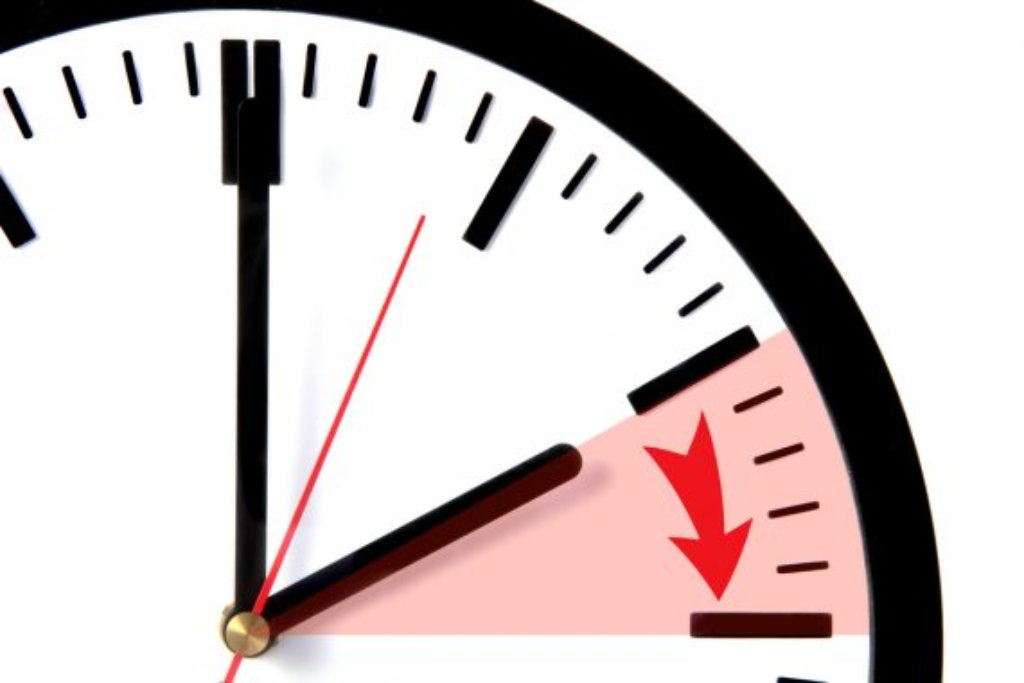
As of the wee hours, most of the United States is back on Daylight Saving Time. While I’m more than old enough to remember the days when this meant, among other things, having to run around resetting every clock in the house (including on such things as VCRs), almost all of mine change automatically these days. The only ones I had to manually change this morning are the ones on my microwave and regular oven.
Otherwise, while I personally prefer having it be light later, and thus favor DST year-round, I don’t consider it all that big a deal. It’s been years since I changed the clocks before turning in, so I have the brief “It’s 5:45—no, it’s 6:45” realization first thing on a Sunday morning. But I never feel like I’m “losing” or “gaining” an hour of sleep.
Regardless, it continues to be a hot button issue for politicians and medical professionals.
NPR (“Changing our clocks is a health hazard. Just ask a sleep doctor“):
Millions of us may lose sleep when clocks “spring forward” by one hour this Sunday, as most states switch to daylight saving time. The time change brings darker mornings and extends light in the evening. And some lawmakers want to make daylight saving time permanent, to avoid the disruption of constant switching.
Senator Marco Rubio (R-Fla.), who has introduced the Sunshine Protection Act of 2023, says the ritual of changing our clocks twice a year “makes no sense,” and is “stupid.” He’s joined by a bipartisan group of senators including Ron Wyden (D-Ore) and Edward Markey (D-Mass).
The Senate unanimously passed a similar measure in 2022, but it did not get enough support in the House of Representatives. Now, Sen. Rubio is trying again, pointing to the potential health and economic benefits. The key argument is, more light in the evening can prompt people to go out and spend more money at shops and restaurants.
Again, I would like to see this change because, as much as I hate it being dark when I wake up, it’s usually dark when I wake up, anyway. Because I’m old. So far as I can tell, though, it has no impact whatsoever on my consumer habits. I almost never go shopping in the evening and, if I’m going to dine out for dinner, I make a reservation for 7:30 regardless of where the sun is on the horizon.
The health impacts have been more complicated to figure out. But in recent years, the spring time change has been linked to an increase in cardiac events, perhaps due to disrupted sleep. One study found an increase in hospitalizations for atrial fibrillation, a type of heart arrhythmia, in the days following the springtime transition to daylight saving time.
“I was very surprised,” researcher and study author Dr. Jay Chudow, a cardiologist at Montefiore Health, told NPR last year. “It’s just a one-hour change,” he says, but this shows how sensitive our bodies may be to circadian rhythm disruptions.
I’m surprised that we keep over-reacting to one-off medical studies that tend to have laughably bad research designs.
Many doctors and scientists agree it’s time to stop the twice a year time change, but they oppose legislation that would make daylight saving time permanent. Instead, the American Academy of Sleep Medicine and the American Medical Association both favor permanent standard time, which preserves morning light.
“Human circadian rhythms are very closely linked to the rising and setting of the sun,” explains Jennifer Martin, a psychologist who is also president of the AASM.
And she says our internal clock is not as well aligned during daylight saving time. “Light in the morning is very important,” she says. “Restoring permanent, year-round standard time is the best option for our health and well-being,” Martin says.
Martin treats patients with sleep problems. “When I work with folks who have insomnia, we work very hard to have a consistent time to get up in the morning. And that is much easier when it’s light in the morning,” Martin explains.
“The Senate has it backwards,” says Dr. Pedram Navab a neurologist and sleep medicine specialist in Los Angeles. “The natural daily cycle of light and darkness,” he says, “is really the most powerful timing cue that we have to synchronize our body clock.”
Daylight saving time increases evening exposure to light, Navab explains, which can make it harder to fall asleep at night. He plans to travel to Capitol Hill in April with the advocacy committee for the American Academy for Sleep Medicine to oppose the Sunshine Protection Act.
The ASSM points to an “abundance of accumulated evidence” linking the transition from standard time to daylight saving time to an increase in cardiovascular events, mood disorders, and car crashes. For instance, a study from scientists at the University of Colorado Boulder, published in Current Biology in 2020, found an increase in fatal car accidents in the week after the spring forward time change. But their solution is to make standard time permanent.
This, on the other hand, seems to be the consensus among medical professionals who study this issue. My preference—which I believe is the overwhelming preference—for more sunlight at the end of the day is not the one recommended by doctors. This also applies to other aspects of my lifestyle, so I’m not shocked.
As for a boom in spending linked to daylight saving time, the nation’s convenience stores told a congressional subcommittee last year that they see an uptick in spending when clocks move ahead in the spring. Back in the 1980s the National Association of Convenience Stores lobbied to extend daylight saving time for a longer stretch of the year. “When people come home from work and there’s more daylight, they tend to be more active,” Lyle Beckwith of the NACS told NPR last year. “They go to sporting events. They play softball. They golf. They barbecue,” Beckwith said. And that translates into more people shopping in convenience stores for everything from water, beer or sports drinks, or to pick up charcoal.
So it seems there’s a divide between what’s likely best for our health (permanent standard time) versus what may be good for the economy (permanent daylight saving time).
My softball playing days are behind me. And I must simply be more of a creature of habit more than the next guy. If I want to grill food for dinner and it’s dark outside, I turn on a light. I’ve been known to knock snow off of the (propane) grill and fire it up. The only effect darkness has is that we’ll eat indoors instead of on the deck.

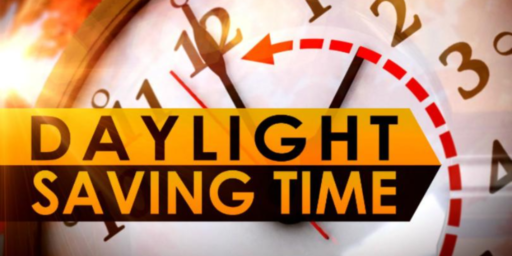
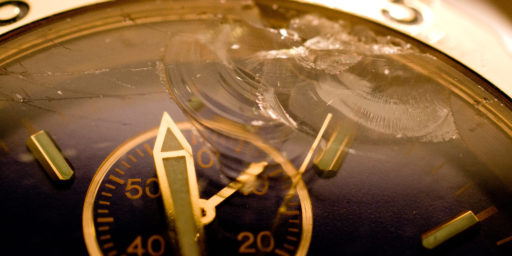
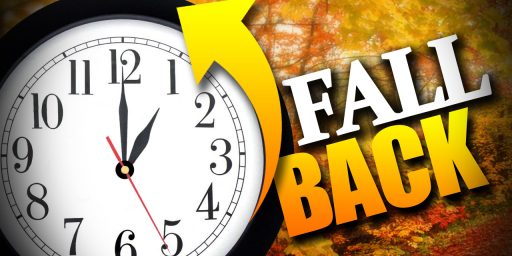
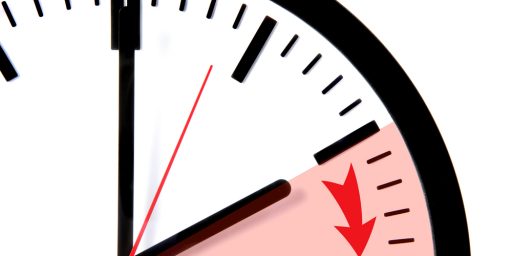
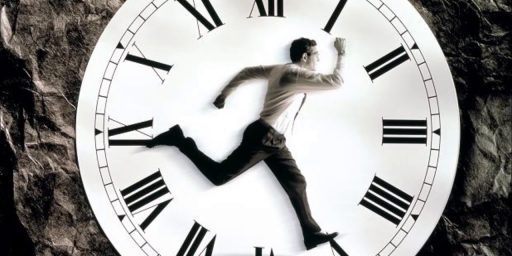
I would far rather stay on Standard Time, but even that has weird effects as far north as we are. If we remained on Standard Time, sunrise at the summer solstice would be at 4:00 a.m. here.
I think a lot of people don’t understand how the sun works. Want to have the sun rise an hour earlier? Move to the east side of a time zone. For an hour later, go west. Want the sun to be up until late at night in the summer? Move north, but realize it will be dark earlier in the winter. No amount of fiddling with the clock will change that reality.
I agree with Nelson Muntz: Ha Ha!
AZ is MST all year round, the only thing that changes is what time the shows on cable (not local) TV come on. (Or what time the NFL games start).
(Being retired, I just operate on sun time anyway, get up when it gets light).
Mexico abolished DST last year, so this year we won’t change any clocks.
Except for some areas in the northern border, which will adjust their clocks to keep the same time as the US cities on the border.
Well it’s a pipedream anyway. This is America, where we can’t get rid of shit.
Bet you a Canadian penny nothing happens.
The current situation is great if you live in the Northeast and surf in the mornings during winter. Stopping the clock switch and bumping first light to about 7-7:30 is going to be tough on guys who have spent their lives building work schedules around their surfing.
Stay on standard time? Only if my little part of the world moves to the Atlantic Time Zone.
@MarkedMan: Yes there is much to be said about living in the western part of a time zone. Spent a few summer days in northern Michigan and having it still light around 10PM was nice. Same for Winnipeg.
This is my twice-yearly call to eliminate time zones as well. Let’s just all agree what time it is, worldwide, and move forward.
Labeling the hours of the day differently depending on your geography is a ridiculous notion in this connected world.
@Modulo Myself: Why do we behave as if the position of the hands on the clock at the moment we start work/school is immutable?
Are we so fully indoctrinated that we can’t adapt our systems to meet our needs?
@Tony W: Exactly! When I lived in China I grew to appreciate the no-time-zone thing. If you schedule a teleconference everyone is sure what time you mean. If it is too early or late for them they will let you know.
Time zones are an anachronism from the pre-telegraph world in which clocks everywhere were set by local high noon. Worldwide GMT seems fine to me.
@Tony W:
Astronomers do that already, for them always Greenwich Mean Time, except IIRC it’s now Universal Time.
@charon: Yes, astronomers do that – science leads the way on the metric system, etc. We need to follow.
I noticed the other day that FlightAware does something similar to prevent confusion on takeoff/landing times for airplanes traveling between time zones, but because they are very U.S. centric, they choose to list all times in the US Eastern time zone.
I’d be great with UTC across the board. I’ll get up at 1000 hours UTC just like I get up at 0300 Pacific, makes no difference to me as long as the coffee machine works.
Excuse me, is this the Cranky Old Farts Get-together? The one that meets twice a year?
@Michael Reynolds: No, this is the group that meets daily.
@charon:
If I can get super-pedantic here:
1. Astronomers generally use sidereal time references like EAR (Earth Angle Reference)
2. The replacement for Greenwich Mean Time is UT1, which is based on the mean solar time at 0deg longitude
3. UTC is based on an atomic clock reference rather than a sidereal or solar reference, and while leap seconds are used to keep it within a second of UT1, they two are not the same
@Stormy Dragon:
I tried googling that , did not get much clarification.
If there is an eclipse, or neutron star merger, or gamma ray outburst etc.,
how would astronomers reference it?
@charon:
Sorry, Earth Rotation Angle, not Earth Angle Reference:
https://en.wikipedia.org/wiki/Sidereal_time
Basically, it removes time shifts cause by variations in the earth’s rotational and orbital speed so that if a particular interstellar object is at a particular location at a particular sidereal time tonight, it will be in the same position at the same sidereal time tomorrow.
If you do it based on solar time, the objects will get to that location a few minutes earlier each night.
@Michael Reynolds:
My granddaddy refused to wear a watch. “I’m already it’s slave and I shall not be its beast of burden!”
There was a clock in every room of the house except the bathrooms.
Yes, but in winter, the higher the latitude, the later the sunrise if you stay on DST. You know, that time of day when people drive to work bleary-eyed. Oh, but along with those drivers in the pitched black, there are children as young as 5 yrs old standing on the side of the road waiting for the school bus. Nothing bad could come from that combination, right?
Back in the mid-70s, I was looking forward to starting high school with the 9 am start time. After near a decade of much earlier times to catch the bus in elementary and jr high. But the dirty bastards switched it up just as I was entering 9th grade. Now high school would start first and so students would catch the early bus. Seems someone thought, hey, why are we having these very young children stand on the side of the road in the dark instead of the older one?
Added benefit was having older kids at home alone in the afternoon instead of dumping 2nd graders off with a latch key.
@Stormy Dragon:
I am not seeing the relevance to messages to other astronomers about transitory events they may wish to monitor.
In the 80s Indian was on Eastern time and did not observe DST except for several counties near Chicago and Louisville which were on Central time and unofficially observed DST. In the early 80s I arrived at a motel in IN on time change day, ready to start a new job on Monday. At check in I was handed a Xerox sheet, single spaced, both sides, with hand drawn maps, to explain what time it was in Indiana. I regard changing time twice a year as ridiculous. About the only thing sillier is not doing it when the whole rest of the country does. Instead of switching clocks we were always going, “Are we on NY or Chicago time this week?” OTOH it was nice playing tennis in daylight past dinner time.
@JKB: I sometimes think that educational systems are on a perpetual hunt for the perfect age/time to start/finish something/everything and it’s always something other than the current system
@MarkedMan: Only sometimes? The most common question I was asked during my career as a teacher (both domestic and foreign/higher and lower ed) was “What’s the best way to teach [subject of your choice goes here].” (Even by administrators sometimes. 😐 )
I have one more clock that I need to change by hand. Because my car was built in Korea (I think that’s the reason anyway) I need to change the time on the clock for the radio/multimedia system manually. And I don’t remember if the Kindle changes automatically or whether I have to resync the system, but that only shows how unimportant knowing the time is when I read using the E-reader.
@Just nutha ignint cracker:..Because my car was built in Korea (I think that’s the reason anyway) I need to change the time on the clock for the radio/multimedia system manually.
Not that it’s much of a bother but I have to manually reset the clock on my 2013 Ford Fusion. According to the window price sticker the final assembly plant was Hermosillo. However that does not tell me where the Radio/CD player was manufactured.
@JKB: A lot of schools are picking up younger kids earlier now because teenagers internal clocks are set to get up later & stay up later.